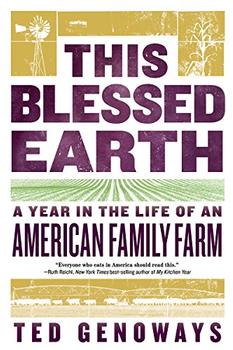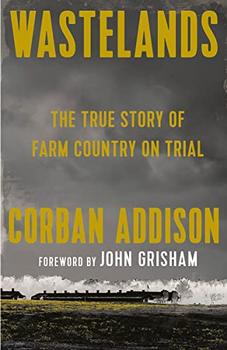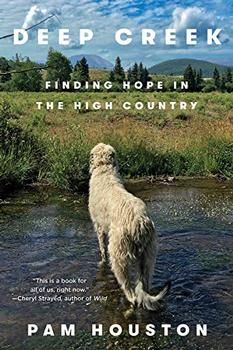Summary | Excerpt | Reviews | Beyond the book | Read-Alikes | Genres & Themes | Author Bio

A Year in the Life of an American Family Farm
by Ted GenowaysFor the Hammonds, a farming family in Nebraska, the 2014 harvest season started with a perfect storm of perilous circumstances: a spell of good weather led to nationwide crop overproduction and surpluses, which caused a drop in projected prices; then heavy late-summer rains delayed the harvest. At the same time, there were concerns about the potential Keystone XL Pipeline (see 'Beyond the Book'), which could cut right through their land and jeopardize the freshwater reserves of the Ogallala Aquifer.
Ted Genoways, a Nebraskan with family roots in farming, is a poet and journalist whose previous works include The Chain: Farm, Factory, and the Fate of Our Food (2014). For this new book he followed Rick Hammond's family and farm workers over one critical year, October 2014 to October 2015. He vividly conveys the rhythms of farming and reflects on the historical shifts that have brought this way of life to a point of crisis.
It was in the early 1970s that family farms began to cede to big agri-business. Then Secretary of Agriculture Earl Butz warned farmers to "get big or get out." This forced small operations like Hammond's to diversify – for instance, by producing genetically modified seed corn for DuPont Pioneer. In addition, the Hammonds grow soybeans in rotation, and raise Black Angus cattle.
Yet uncertainties are intrinsic to the farmer's life; "you can't control the weather, and you can't control the markets," Rick's daughter Meghan explains. Indeed, "failure is everywhere on the farm," Genoways ominously proclaims, as when the Hammonds discovered stem borer caterpillars in their soybeans and had to call in the insurance adjustor to calculate their losses.
There are fascinating historical facts here. For instance, did you know Henry Ford is to thank for the success of soybeans in the USA? In addition to farming soybeans, Ford was also interested in using them for fuel, and this was part of the early impetus towards developing biofuels. He funded research into alternative uses for surplus crops in industry, such as biofuels and plastics. The same tactic, applied to corn, caused so much of it to be diverted to ethanol production that there were global scarcity scares around 2005.
In between the book's major sections are four brief interludes that zero in on particular aspects of the Hammonds' life. A touching story unconnected to farming features in one of these. Meghan's high school boyfriend, a Marine, was killed in Iraq in 2006. The town named a street and an annual dance after him, and his mother still maintains his bedroom like a shrine. Even though Meghan moved on – by the end of the book she's married with a baby – the legend of Lance Corporal Brent Zoucha lingers.
I especially liked these stories and the black-and-white photographs of the farm work, contributed by Genoways' wife, photographer Anne Andrei. At times I wondered if the book's niche subject and specific family history could limit its readership. An interest in farming and food production is probably necessary to truly appreciate it. It could, of course, be argued that everyone should be paying attention to where their food comes from, but I can see how a few readers might get lost in the details of irrigation systems or 1970s–80s farming policies. However, if you enjoy books by Wendell Berry and Michael Pollan, for instance, or have read and liked what could be considered the U.K. counterpart of this book, Land of Plenty by Charlie Pye-Smith, you will appreciate This Blessed Earth. It is a unique combination of group biography, history, and science.
The epilogue, in particular, has a well-balanced tone: Genoways tempers his worry with optimism, showing that farming is a threatened yet resilient way of life. The last words in the book belong to Meghan, the sixth generation of this farming family, as she affirms their commitment to the work and to the land: "Whatever comes, we'll find a way to get by."
![]() This review was originally published in The BookBrowse Review in October 2017, and has been updated for the
January 2019 edition.
Click here to go to this issue.
This review was originally published in The BookBrowse Review in October 2017, and has been updated for the
January 2019 edition.
Click here to go to this issue.

If you liked This Blessed Earth, try these:

by Corban Addison
Published 2023
As vivid and fast-paced as a thriller, Wastelands takes us into the heart of a legal battle over the future of America's farmland and into the lives of the people who found the courage to fight.

by Pam Houston
Published 2020
"How do we become who we are in the world? We ask the world to teach us."
Your guide toexceptional books
BookBrowse seeks out and recommends the best in contemporary fiction and nonfiction—books that not only engage and entertain but also deepen our understanding of ourselves and the world around us.